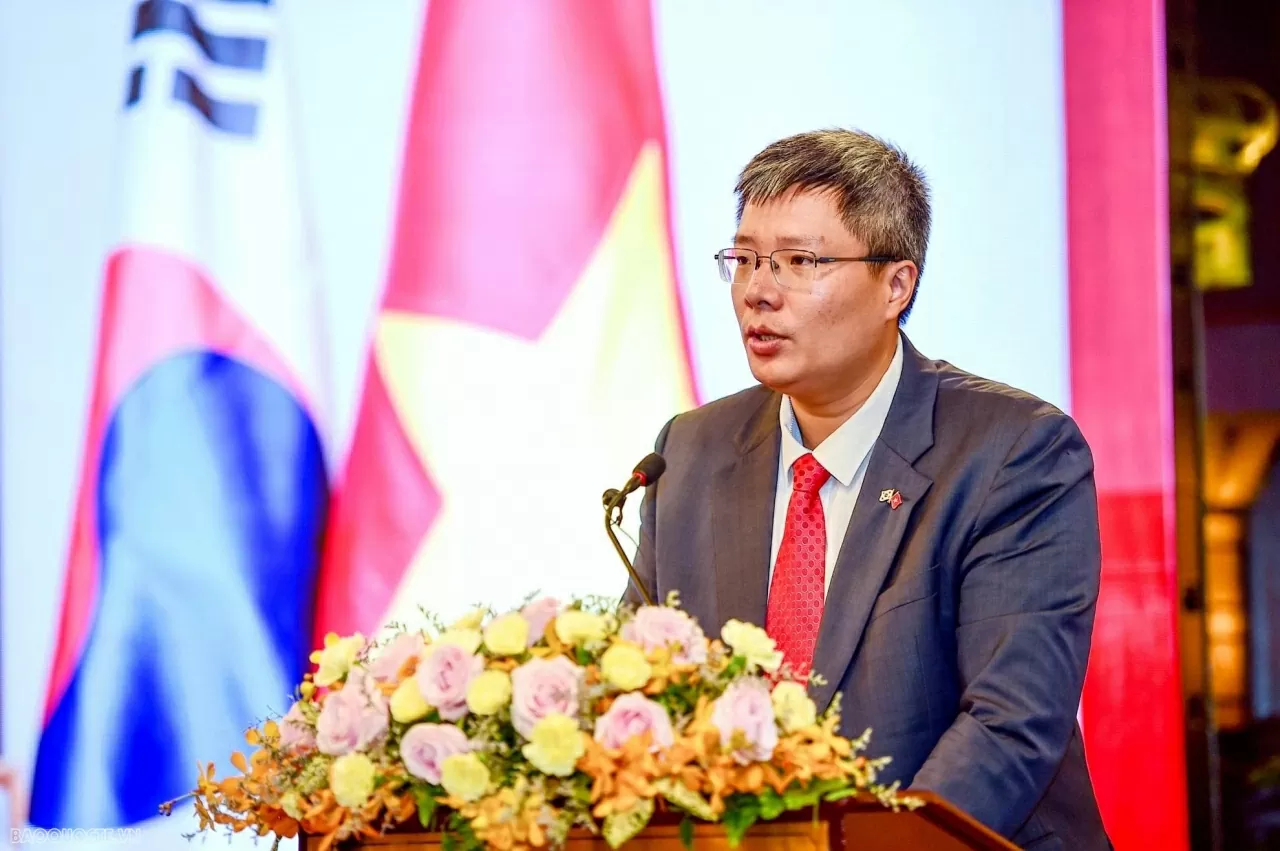 |
| Dr. Tran Hai Linh, Member of the Central Committee of the Vietnam Fatherland Front , Chairman of the Vietnam-Korea Businessmen and Investment Association (VKBIA), Founding Chairman of the Vietnam-Korea Experts and Intellectuals Association (VKEIA). (Photo: Nguyen Hong) |
Proactive role
According to Dr. Tran Hai Linh, member of the Central Committee of the Vietnam Fatherland Front, Chairman of the Vietnam-Korea Businessmen and Investment Association (VKBIA), founding Chairman of the Vietnam-Korea Experts and Intellectuals Association (VKEIA), the signing of the United Nations Convention against Cybercrime, or the Hanoi Convention, with the theme "Combating Cybercrime - Sharing Responsibility - Towards the Future", in Vietnam at the end of October 2025 has many strategic meanings in terms of law, foreign affairs and national security.
Dr. Tran Hai Linh affirmed that this is the first time a major international convention on cybercrime prevention and control and cross-border electronic judicial cooperation has been named after the capital Hanoi - the political and diplomatic center of Vietnam. This event also demonstrates the international community's trust and recognition of the proactive and positive role of the S-shaped country in promoting a safe, transparent and responsible cyberspace. Vietnam is not only a beneficiary country but also a country that contributes intelligence, voice and initiative to the international process on cyber security.
The VKBIA President emphasized that the Hanoi Convention opens up opportunities for Vietnam to enhance international legal cooperation in handling high-tech crimes, protecting personal data and responding to cross-border challenges in cyberspace.
This will be the foundation for Vietnam to improve its investigation, prosecution and trial capacity, while creating a solid legal corridor to attract digital investment and strengthen the trust of international partners. The fact that the Convention is named “Hanoi” is also a symbol of the spirit of integration and global responsibility, showing that Vietnam is gradually transforming from a “participant” to a “rule-maker” in global issues.
Assessing Vietnam's leading role in the negotiation process, Dr. Tran Hai Linh commented that this is a bright spot demonstrating Vietnam's diplomatic mettle and growing international prestige. In the context of many differences in the world's approaches to cybersecurity, digital sovereignty and data privacy, Vietnam has played the role of a "dialogue bridge" between groups of countries with different legal systems and interests. Flexibility and ingenuity in diplomacy, along with the principle of respecting international law and the legitimate interests of all parties, have helped Vietnam reconcile viewpoints, contributing to bringing the negotiation process to a rare consensus.
In particular, Vietnam’s role as host and co-chair of many key negotiation sessions demonstrates its ability to “lead by trust” – a form of soft power typical of modern multilateral diplomacy. We have demonstrated that instead of imposition or confrontation, dialogue and cooperation are the sustainable path to building a safe and fair digital order for all.
Responding to the question about the ability to balance interests among the powers, Dr. Linh said that in the context of increasingly fierce geopolitical competition, Vietnam has demonstrated its independence, autonomy and flexible multilateralism. Vietnam does not take sides but focuses on the common interests of the international community: A safe, trustworthy cyberspace that serves people. Throughout the negotiation process, Vietnam also played the role of mediator, reconciling differences between developed and developing countries, between blocs with different approaches to privacy and digital sovereignty.
In particular, according to him, Vietnam has skillfully applied “bamboo diplomacy” – strong roots, flexible trunk, far-reaching branches – to both protect national interests and contribute to the common good. Through that, Vietnam has shown its ability to “be friends with everyone, not confront anyone”, while promoting cooperation based on international law, equality and mutual benefit. It is this balance and prestige that has helped Vietnam become a center of trust, where countries can dialogue together and find common ground in a sensitive field such as cyber security.
Commenting on the impact of the Hanoi Convention, Dr. Tran Hai Linh pointed out that this document is not only a new legal framework in the field of cyber security, but also a symbol of the spirit of cooperation, trust and global responsibility in the digital age. The Convention will help establish a unified legal cooperation platform, creating conditions for countries to share information, support investigations, extradition and handle cybercrime more effectively, while ensuring human rights, privacy and digital sovereignty of each country.
Experts believe that the process of negotiating and reaching consensus on the Hanoi Convention also provides valuable lessons for other multilateral initiatives: only equal dialogue, mutual respect and common interests can create real unity. Vietnam, despite being a developing country, can still play the role of "consensus builder", connecting the voices of major powers and smaller countries. Therefore, the Hanoi Convention not only contributes to strengthening global cyber security but also opens up a new model of international cooperation - flexible, practical and oriented towards sustainable development.
Roadmap to the future
In addition, to maintain a proactive role and increase influence in promoting the implementation of the Hanoi Convention as well as international cooperation mechanisms on cybersecurity, Vietnam should continue to synchronously deploy foreign policy, domestic capacity and multilateral and multi-sectoral linkages. Therefore, Dr. Tran Hai Linh proposed some specific steps such as:
Moving from signing to practical implementation : It is necessary to develop a roadmap for implementing the Convention at the national level, including a legal framework, technical guidelines, and inter-sectoral coordination standards; Issue guidance documents so that agencies, localities, businesses, and professional organizations clearly understand their responsibilities and cross-border coordination procedures when an incident occurs.
Next is to strengthen enforcement capacity: It is necessary to improve the capacity of the investigation force, the court, and the prosecution on cybercrime (intensive training, joint practice programs with international partners). Develop and fund cyber incident response teams (CERTs) at the central and local levels; organize annual interdisciplinary and international exercises.
Strengthening the improvement of laws and technical standards: Improve relevant laws and guidelines (personal data protection, cyber security, electronic judicial cooperation) to be compatible with the Convention's commitments while ensuring respect for human rights. Promote technical standards and frameworks for sharing cybersecurity information among parties based on the principles of confidentiality and compliance with the law.
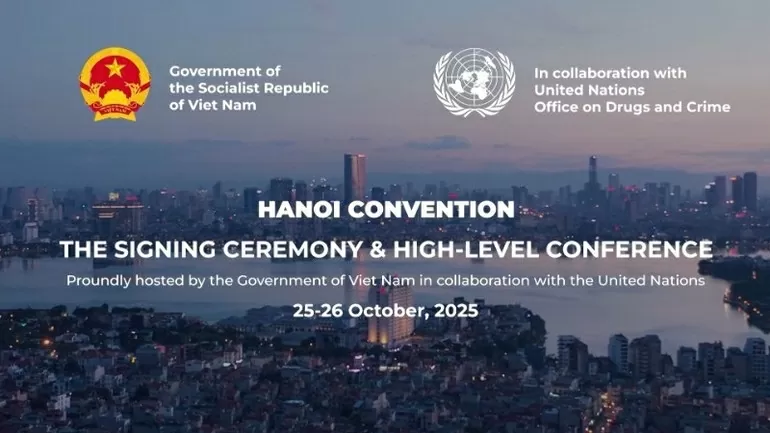 |
| The United Nations Convention against Cybercrime, or the Hanoi Convention, with the theme “Combating Cybercrime – Sharing Responsibility – Looking Forward”, which will be opened for signature in Vietnam at the end of October 2025, has many strategic meanings in terms of law, foreign affairs and national security. |
Promote public-private and multi-stakeholder cooperation: Accordingly, encourage the PPP (public-private partnership) model, the state coordinates with technology, banking, and telecommunications enterprises to lay a platform for sharing early warnings. Create regular forums between the government, businesses, academia, and civil society to update risks and coordinate responses.
Building a Center of Expertise/Center of Excellence , with the establishment of a regional hub in Hanoi (or Hanoi–Korea connection) specializing in training, research and technical cooperation in cybersecurity, as a highlight for Vietnam's digital diplomacy.
Implement bilateral and regional technical cooperation programs: Expand training programs, exchange experts with advanced partners (Korea, EU, Japan, USA) and be active in the ASEAN+ framework to share lessons and standards.
Support SMEs & critical infrastructure by providing technical assistance and training packages for SMEs - vulnerable but important groups for the supply chain; prioritize the protection of essential infrastructure (health, energy, finance) with a common risk assessment model and financial support for security upgrades.
Transparency, monitoring and reporting, developing indicators/frameworks to assess the progress of implementing the Convention : Number of international coordinated cases, response time, CERT capacity, rate of cases handled... Publish periodic reports to increase international trust.
Maintaining the spirit of multilateralism and balancing interests : Continue to play the role of a consensus-building intermediary, maintain a stance of respecting international law, human rights and common interests, so that the Convention is applied substantially and not instrumentalized for geopolitical interests.
Strategic communication and constructive diplomacy; use technical diplomacy : Organize international conferences and workshops in Vietnam, invite experts and partners, and clearly announce cooperation initiatives to maintain the pace of influence after the Convention is signed.
In short, Vietnam needs to quickly move from the negotiation stage to practical implementation, perfect the legal framework, improve investigation and incident response capacity, and promote public-private and multilateral cooperation. The establishment of centers, expertise, international training programs and inter-country exercises will help Vietnam not only comply with but also lead the implementation of the Convention. Along with transparency in the process and assessment indicators, Vietnam will maintain a proactive role, contributing to building a safe and trustworthy cyberspace for the region and the world.
Source: https://baoquocte.vn/viet-nam-hanh-trinh-tu-tham-gia-den-dinh-hinh-luat-choi-trong-hop-tac-toan-cau-ve-an-ninh-mang-331654.html


![[Photo] Prime Minister Pham Minh Chinh meets with Speaker of the Hungarian National Assembly Kover Laszlo](https://vphoto.vietnam.vn/thumb/1200x675/vietnam/resource/IMAGE/2025/10/20/1760970413415_dsc-8111-jpg.webp)



![[Photo] Prime Minister Pham Minh Chinh received Mr. Yamamoto Ichita, Governor of Gunma Province (Japan)](https://vphoto.vietnam.vn/thumb/1200x675/vietnam/resource/IMAGE/2025/10/21/1761032833411_dsc-8867-jpg.webp)
![[Photo] Da Nang residents "hunt for photos" of big waves at the mouth of the Han River](https://vphoto.vietnam.vn/thumb/1200x675/vietnam/resource/IMAGE/2025/10/21/1761043632309_ndo_br_11-jpg.webp)
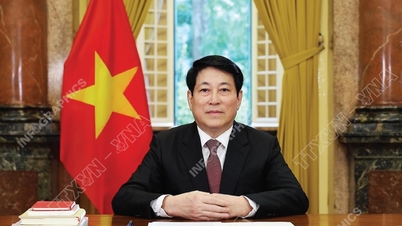


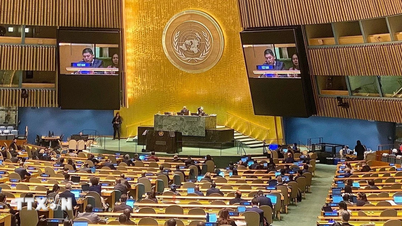

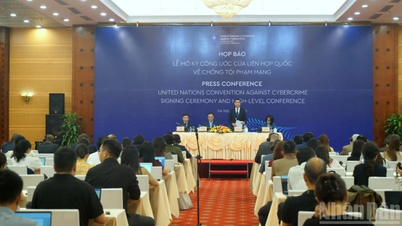

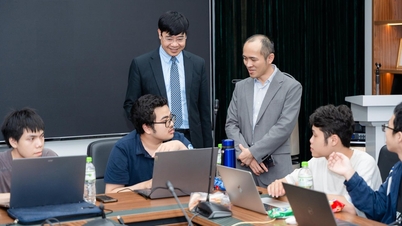

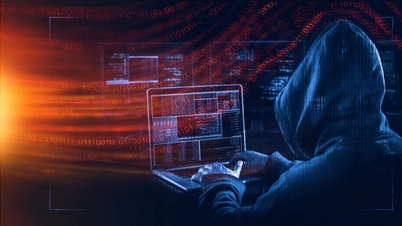

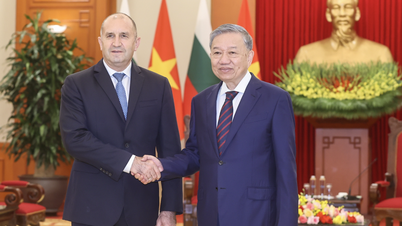

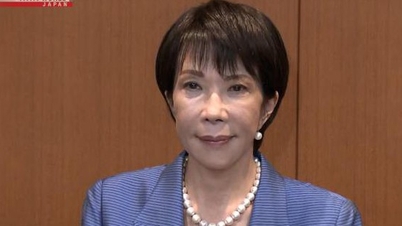

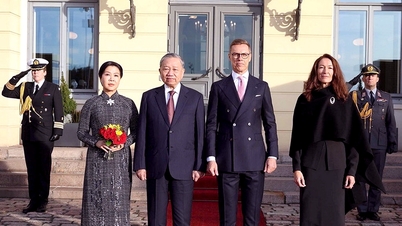


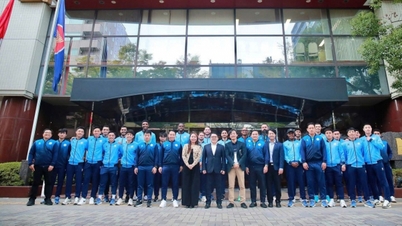
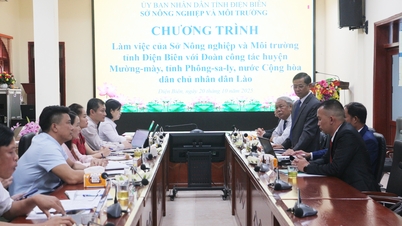




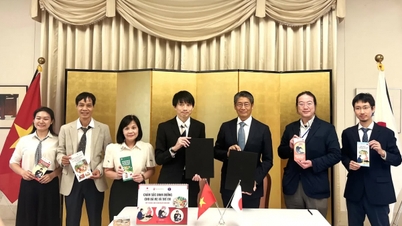
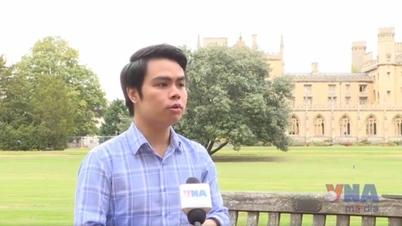
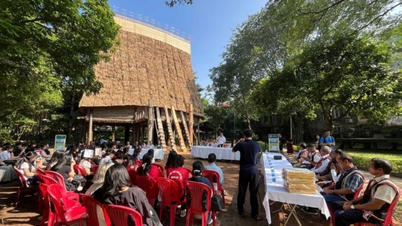

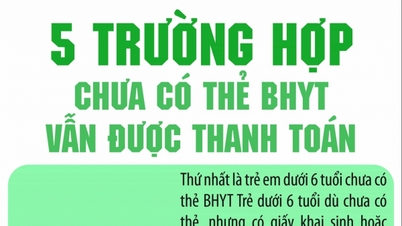
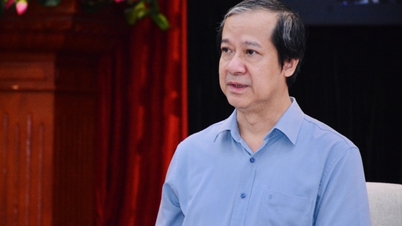




















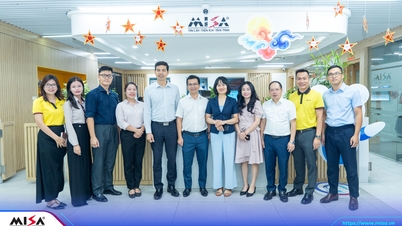














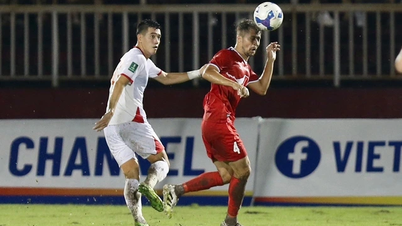

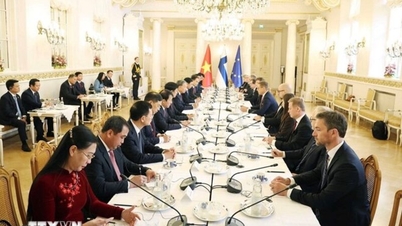

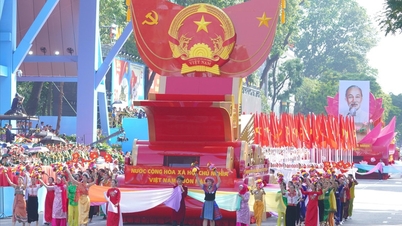
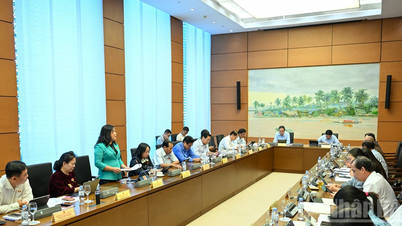
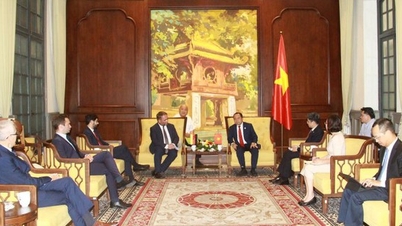

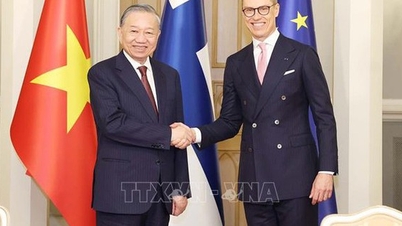
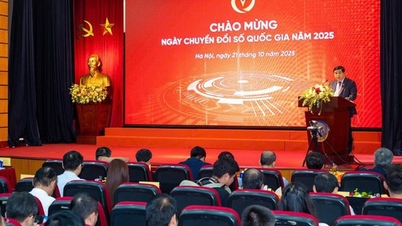


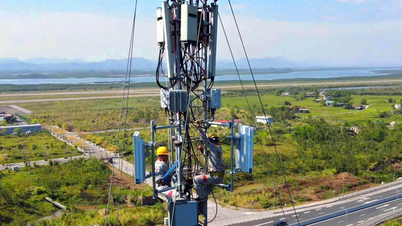
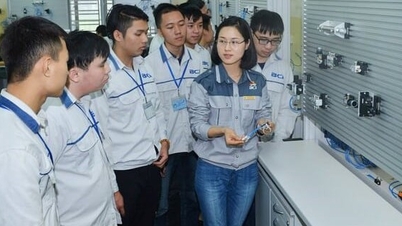
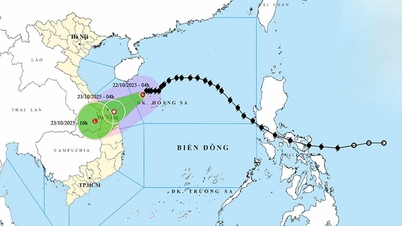

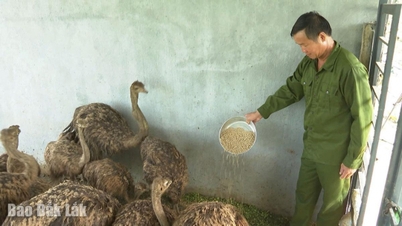

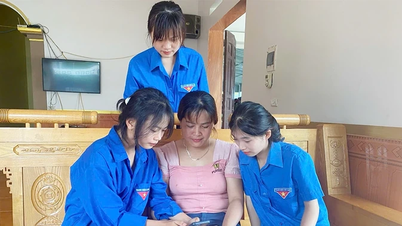

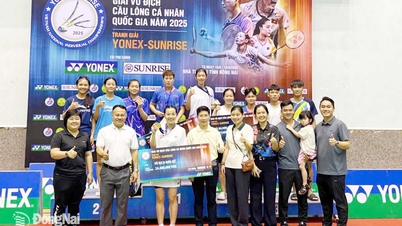

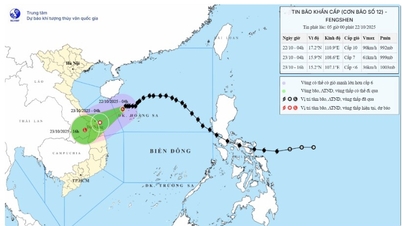


















Comment (0)